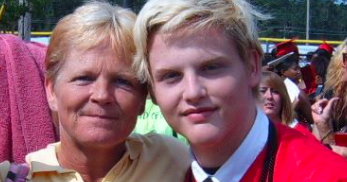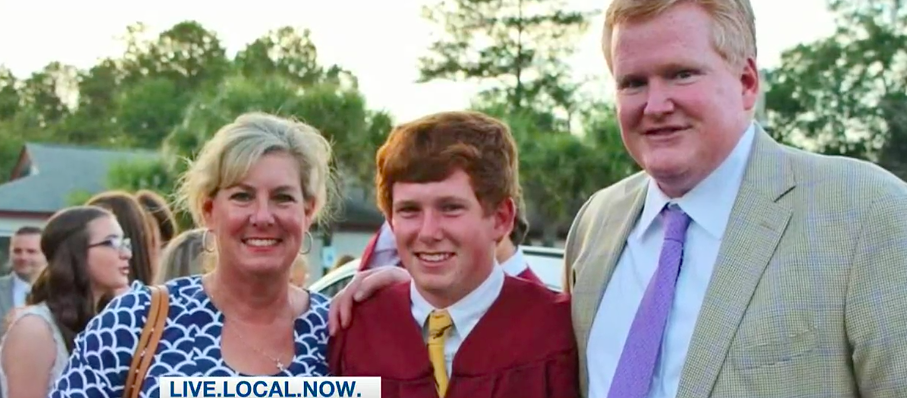Survival skills came early for Stephen Smith.
He was born as a twin weighing just over two pounds, and the odds were given 50-50 of his living to his first birthday. But he was a little fighter, and somehow despite the obstacles put before him — the poverty, the harshness of growing up in the rural backwaters of the Deep South — Stephen managed to defy expectations and grew up adored by his family. But it was never easy. Even more so when it became clear at an early age that this blond haired, sensitive boy was gay, his life became even more complicated.
And yet he survived the challenges of growing up in a working class family, going to a public high school surrounded by rednecks and the cliques that every small town seems to incubate, and navigating the impossible terrain of “hooking up” when the nearest city is a hundred miles away down desolate country roads past thick pine forests and anonymous farms.
Apparently he was well liked, despite what the locals called “his lifestyle,” and his family loved and supported him. He had always had a huge heart, which is difficult for even the most homophobic person to impugn, and his goal in life was to eventually become a doctor, maybe helping kids in foreign lands who were even worse off than he had been.
To that end he was enrolled following high school at a technical college in Orangeburg, a large town about 55 miles away, which he commuted to for his nursing classes.

All of this came to a tragic end, however, in the middle of the summer in 2015. On a remote country road sometime around 3:00 a.m. Stephen was killed. He had been struck by a blunt object on his right temple, killing him.
A passerby in a car called in a 911 report, and by dawn the local highway patrol was conducting an investigation, collecting evidence, trying to piece together what might have happened. Stephen’s car was found about three miles further down the road, the gas cap undone, with his wallet still in the car. The police surmised that he had run out of gas and was walking towards the nearest town when whatever killed him, happened.
What that something was — this unknown violent killing whether deliberate or accidental — is the subject of ongoing rumors and speculation in this tiny corner of South Carolina. The details are still unfolding, even after six years, and the cold case was given fresh impetus when in June the state’s highest investigative authority, SLED (South Carolina Law Enforcement Division), announced that they were taking over the investigation due to new evidence uncovered in now infamously sordid Murdaugh murders.
If you are unfamiliar, or just peripherally aware, of the biggest crime story of the summer, here is a synopsis. This modern Southern Gothic tale of corruption, venality, and privilege centers on the Murdaugh (pronounced Murdock) family of Hampton County. The Murdaugh’s are one of the most powerful families of what South Carolinians call “the Low Country,” the band of marshy flat inlets and farmland that stretches from the Atlantic into the coastal plain inland until you reach the Midlands which is hillier. In former times the Low Country was populated by plantations, the huge antebellum estates owned by white families with slaves tilling the land for cotton, rice, sorghum, and any other cash crop. The Murdaugh family was the dominant force in Hampton County for over a century, with the head of the family holding the political highest office (solicitor general) for generations.

What put the Murdaugh’s on the national radar was the double murder of Alex Murdaugh’s wife and youngest son (Paul) in June of 2021. The unusual circumstances of their own death are what is driving the media storm, and for a thorough unraveling of the entire Murdaugh saga Slate magazine has done an excellent summation, but for a true deep dive from a local investigative reporter go to Mandy Matney’s ongoing work at FITSNews.
But prior to the double homocide of the Murdaughs, there was a boating death in 2019 which implicated the now deceased Paul Murdaugh; and prior to the boating incident was the mysterious death of the Murdaugh’s housekeeper Gloria Satterfield in 2018; and before that was the still unsolved killing of Stephen Smith in 2015.
Stephen’s connection to the Murdaugh boys, “Buster” and his younger brother Paul, is more than that they were classmates in high school. During the early stages of the highway patrol’s investigation Buster Murdaugh’s name came up frequently. In some instances he was mentioned as an “intimate” friend of Stephen, in other occasions, the rumor mill put him in immediate vicinity of the crime (he had been at a softball tournament that night, riding in a pick-up from another town. The investigating officer asked the medical examiner if a baseball bat could have been the blunt object that killed Stephen, to which she snapped “that’s your job to find out.”). Buster’s grandfather, the patriarch of the family, apparently immediately swooped in to offer his “services” for free as an attorney to the Smith family, which they thought was strange.
Like many gay young adults, Stephen undoubtedly had a “messy” life. He had good friends, and what could charitably be called sketchy friends. Apparently he had an “older male” friend pay for his smart phone, and police found in Stephen’s car a gate key card to a gated community in Hilton Head island, about an hour’s drive from Hampton, to a recently divorced older man. So there are a lot of unknowns regarding Stephen’s final moments, but leading up to his death there was nothing out of the ordinary according to his parents.
His mother just wants justice for her dead son. Now with the new evidence uncovered during the investigation of the double murders at the Murdaugh hunting lodge, she hopes that the truth will finally come out.
Sources, FITSNews, Slate, Murdaugh Murders Podcast

